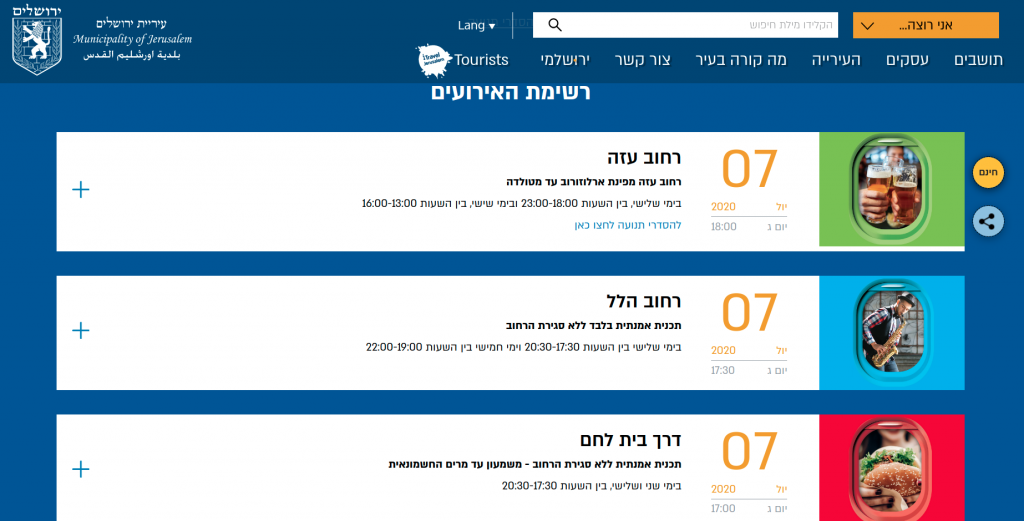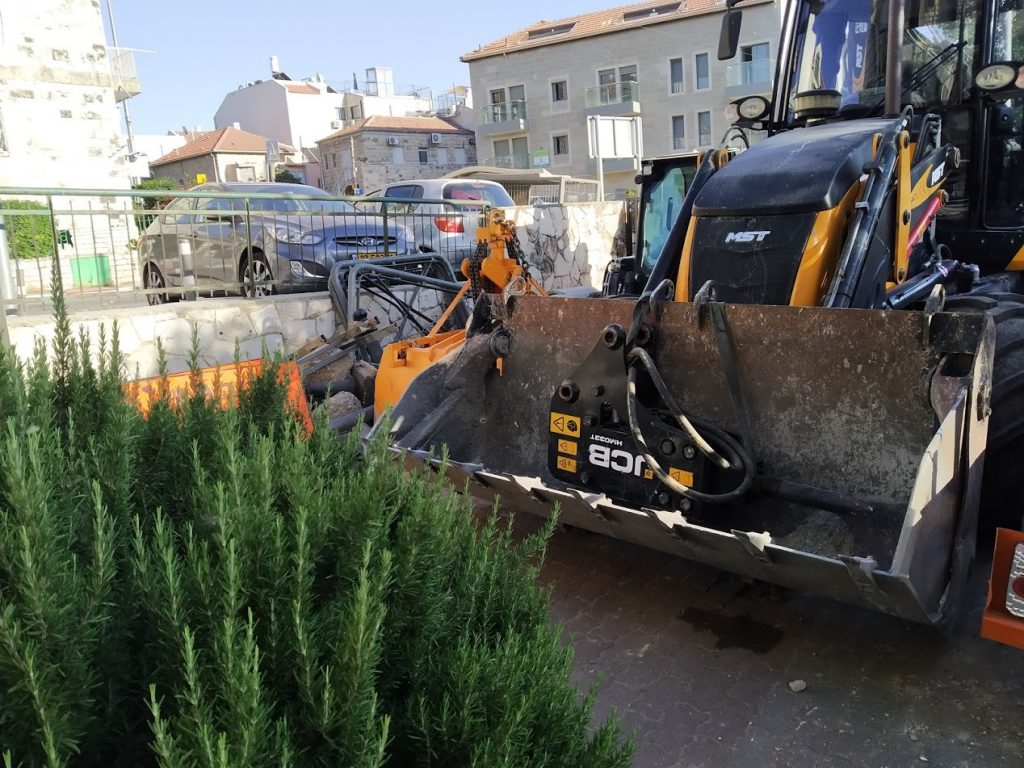
Yes, you read that right.
The geniuses at the Jerusalem Municipality decided that the best thing to do during the coronavirus was: throw together an elaborate street festival!
I first actually learned of this initiative through a piece in the Times of Israel.
In “Pedestrians only: Jerusalem and Tel Aviv to close off major streets to vehicles,’ published almost two months ago to the time of writing, Michael Bachner explains:
“….in Jerusalem several central streets will be open only to pedestrians for hours at a time in the evenings over the next few months
In Jerusalem, the closures will have a much more dramatic effect on traffic, since they include central streets such as Hillel, Agripas, Azza, Emek Refaim and Derech Beit Lechem. However, each road will be closed only twice a week in the evening hours, and only until the end of August.
Street shows will be held, with the project aimed at supporting restaurants and stores battered by the virus closures.
The initiative is set to begin when restaurants are reopened and end August 31, with a possible extension until October 31.”
The report — while accurate — fails to adequately explain just how disruptive this has been to local residents between the street closures that have been enforced and the noise pollution.
I happen to, unfortunately, live slap bang in the middle of one of the designated “zones” for these senseless public entertainment events that defy common sense by encouraging the local population to congregate in large numbers rather than socially isolate.

I will avoid saying precisely where but suffice to say this means that I have to listen to extremely loud entertainment between the hours of 17:30 and 21:00 every every Monday and Tuesday for the remainder of the summer. In fact, if the projects ends when it is expected to end this will mean three months of this weekly nuisance.
Last week it was a clown on stilts screaming jokes to a huge crowd of gathered children over a microphone system that reverberated throughout our apartment a stone’s throw away. This week it is a lot more tasteful jazz. But both are annoying when you’re forcibly subjected to the “entertainment” two evenings a week — by a municipality that claims that it’s putting these events on “for your benefit” and which you have paid for through your arnona (municipal tax) contributions.
How loud are we talking?
Loud enough that there’s no way for me to block out the noise of the festival anywhere in the apartment without streaming white noise through headphones. Not in the bathroom. Not in the bedroom. Not in the living room. Not in the home office where I sometimes need to hold calls after the Israeli workday. It’s extremely grating.
What’s bizarre about the whole situation is that virtually all of the businesses on our street seem to share our feelings on the matter. The street festival is supposed to bring levity and joy to people stuck at home — and incentivize people to patronize local businesses. Instead, the local businesses who the initiative is apparently being done for are reporting that customers are expressing irritation at the events because they can’t find parking! Local residents, who are being encouraged to stay home because of the pandemic, find that they are subject to a weekly barrage of noise pollution within their homes in exchange for following orders. During the first week the event ran, it was virtually bereft of patrons with municipality workers outnumbering those in attendance by a large multiple. We even found a sympathetic ear in a local policeman helping set up the event who was fully aware that the event was “hated” by local residents and businesses alike and privately confided that he thought it would not survive the national government’s attempt to reimpose a form of lockdown. So far, sadly, that has not proved to be the case.
What irks me almost as much as the noise is that this half-baked “inititative” was planned without any consultation with local residents. And we’re not talking about a once off summertime street festival. We’re talking about a twice a week disruption that is slated to continue for three months! The Municipality has also refused to listen or engage with any of the many residents and businesses who have complained to it.
My complaint to the Jerusalem Municipality (translated into English) received the following cookie-cutter reply. It conveniently neglects to mention exactly why and how this is benefiting local businesses and why the needs of local residents, for quiet enjoyment of their neighborhood, apparently received no consideration. Or, more pressingly, why this was considered a good idea in light of the health situation (the “happiness” to assist with further questions vanished as those questions, posed in a follow up email, were ignored):
Response from the Jerusalem Municipality:
In responding to your inquiry about Israel’s pedestrian city, as you know, the epidemic disrupted the city’s various branches of commerce, hurting the restaurant business and cultural business owners, as it disrupted the city’s cultural leisure and entertainment activities.
Disabling the economy and business following the crisis has caused serious damage to both business and to moral harm and despondency in the general public.
The Jerusalem Municipality has initiated a short-term project, which will allow for a very temporary closure to a limited number of limited hours of streets around the city, in order to give impetus to the various businesses.
This project significantly supports the various commercial businesses, the restaurant industry and cultural business owners on the one hand, and on the other hand, will make Jerusalem streets a focal point combining a shopping experience with a unique cultural experience for the residents of Jerusalem, while meeting the conditions of the Ministry of Health.
The project activity is three hours, twice a week in the late evening, and the program will alternate between several neighborhoods that will become an experiential pedestrian street in the city.
At this point, the municipality is working to find alternatives and parking solutions, noise prevention and inconvenience to residents.
More information can be obtained at hotline 106 and the municipal website.
I would be happy to assist with any questions.
And my commentary:
- Three months is not “very temporary”
- There is no evidence that this benefits local businesses in any way
- So far the project has not “alternated” from our neighborhood for a single day.)
After five years spent living in Jerusalem, I have come to take a very dim view of the Jerusalem Municipality.
It is the same body that authorized almost inhumane 24/6 construction outside my former apartment and even authorized a build so close to my now wife’s old apartment that you could physically touch the heavy machinery while drinking a cup of coffee (photo below: the worksite continued like this for many weeks). The Municipality is good at putting on unnecessary shows to present Jerusalem to the international community. But very poor, in my opinion, at actually engaging with the needs of its local residents. Among countless examples I could provide is the Municipality’s seeming obsession for repaving perfectly good sidewalks to demonstrate that they are doing something. Meanwhile, Jerusalem remains the poorest city in Israel’s and badly in need of jobs to stimulate its local economy.

Whether the Jerusalem Municipality is just a particular case of the fact that many local governments are incompetent, or an especially egregious case of that generality, I am not sure.
But either way, the ‘Main Street’ project is certainly not one of their best considered initiatives.


